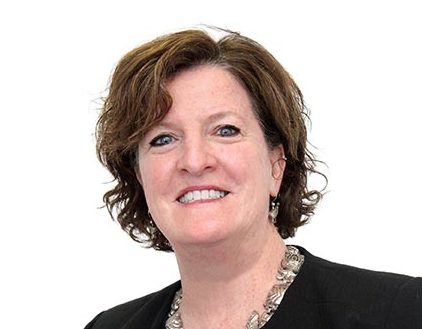Written By: Lisa Bresslin
Union Crossing — that’s the name of the new townhome cluster in Westminster that will soon welcome five families as homeowners for the first time, thanks to Habitat for Humanity of Carroll County and a league of volunteers.
Union Crossing. There could be no better name. Sure, the townhomes are tucked behind the mini-mart on the corner of Pennsylvania Avenue and Union Street, so Union Crossing is a literal nod to that intersection.
I wonder if the name is symbolic, too.
Think of the lives that crossed as volunteers and soon-to-be-homeowners built the neighborhood from the ground up. Consider the unions formed as the individual families grow into neighbors.
Union Crossing. The name is perfect.
I’m fascinated by names — the concept of living up to them, taking them, changing them, using them as a tribute and shifting them to nicknames. At the heart of my fascination is how names shape individual, or group, identity.
The fact that my father’s name is Rush, and he and Mom had eight children cracks me up.
Back in the day, names often indicated the family profession: Baker, Fletcher, Mason, Smith. Likewise, names suggested lineage: Judson (son of Judd), Adamson (son of Adam), Wilson (son of William).
When she was 7, my youngest daughter, Kate (Kate McConville Breslin), assured everyone that her name was “straight Kate”; not a Katie or a Catherine wannabe. She can articulate how she felt then better now.
“Kate sounded stronger and I felt strong,” she explains. “And eventually, I was proud that Kate was not a shorter version of another name.”
In Virginia’s Woolf’s novel Mrs. Dalloway, the author alternately refers to the protagonist by her first name, Clarissa, and her married name, Mrs. Dalloway. The alternation is purposeful. When the focus is on the protagonist as a woman evolving into a stronger sense of self with self worth, she isClarissa. When she assumes her role as a married woman among high society, she becomes Mrs. Dalloway.
Whether it’s this post-First World War novel or the names of sons or daughters born this month, names and their use often reflect or shun social values. They also establish distance or bring people closer together.
Associated Press style calls for journalists to use last names, a rule that makes me itchy sometimes. When we write about children or unfold a feature that is particularly soft, I bend the rule and roll with first names.
Unfortunately, names sometimes dictate who is “in” and who is “out.”
In her April 2011 article for Financial Post titled, “Your Name is Part of Your Identity,” human rights lawyer and diversity advisor Sandeep Tatla cites a study that sent thousands of resumés to Canadian employers. Researchers “found candidates with English names such as Jill Wilson or John Martin received interview callbacks 40% more often than identical resumés with names such as Sana Khan or Lei Li,” according to Tatla.
Names should not dictate who is “out” and who is “in.”
The name Union Crossing launched these musings.
For me, the name represents who, and what, will soon be in the neighborhood: Five families, 12 children and a joyful spirit — the same spirit that brought hundreds of volunteers to the site.
These are what make Union Crossing much more than a name.
Enjoy the holidays. Amazing Peace.*
– Lisa Moody Breslin
*This salutation is inspired by Maya Angelou’s poem by the same title.

